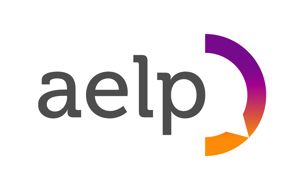Why Improving Numeracy Does Add Up #NationalNumeracyDay
As someone who completed a finance degree, I've always had a passion for numbers. Good numeracy skills are critical from both a personal and professional perspective. 18 May is National Numeracy Day, which is a great opportunity to celebrate and promote awareness about the importance of having good numeracy skills.
Feeling confident with numbers helps in every kind of job. Often you hear numeracy and maths being used interchangeably, when in fact they are not the same thing. Numeracy is about being confident in using numbers and data to make good decisions in daily life. From measuring building materials or mixing hair dye, to checking invoices or organising medicines: number skills are essential for all of us.
However poor numeracy remains endemic. Government statistics suggest that 17 million adults- equating to 49% of the working-age population of England- have the numeracy level that we expect of primary school children. Much more needs to be done to address this challenge. The total cost to the public purse has been put at a staggering £20 billion a year, so the business case here is clear to me.
Too often core life skills such as literacy and numeracy are overlooked and undervalued. Look no further than the 2021 Further Education White Paper, which focuses on ambitious plans to transition to a high skills economy through a primary focus on investing in higher technical skills. However, a number of the recent local skills improvement plan (LSIP) pilots that AELP was involved in were clear that employers still not only value but want and need workers with strong core life skills, as they see these as vital building blocks to then build and grow talent from.
As the gatekeeper to the public purse, you would expect that Chancellor Rishi Sunak values and understands the importance of good numeracy skills. In fact, the Chancellor has personally been the driving force behind the government’s new Multiply programme, which is being rolled out nationally with £560 million funding from the UK Shared Prosperity Fund (UKSPF). Multiply aims to support more adults to increase the levels of their numeracy skills. Multiply is the only skills aspect of the UKSPF that is being released before the start of 2024, which reinforces further the value the Chancellor places on driving up numeracy skills of adults.
There are a range of different provider types that are well-placed to deliver Multiply, whether that's in a community-based setting, in a classroom environment or within a workplace. It's therefore important that the regional commissioners of Multiply- combined authorities and upper-tier local authorities- properly recognise the different experiences of providers in developing an inclusive approach to delivering successful numeracy outcomes to adults. Many of the 17 million adults with poor numeracy are now out of reach of the education system, meaning employers must play their part too, which is where independent training providers who dovetail so effectively with them come in. Independent training providers are very well-placed to support the delivery of Multiply and need to be part of an integrated solution that harnesses the skills of different provider types.
Whilst Multiply is aimed at supporting adults to improve their numeracy skills, this still feels very much like a treatment rather than a long-term cure. The cycle of poor numeracy needs breaking at the source. Unfortunately, too many young people are being failed by the schooling system, with 1 in 5 leaving school ill-equipped for the literacy, and particularly numeracy skills that they will need in everyday life.
In the recent Schools White Paper which promises to level up education, the government set an ‘ambition’- rather than a target- to improve the literacy and numeracy skills of young people by 2030. Whilst the intent is positive, much more is needed to properly tackle the issue at its source rather than try and address it in the future. The number one issue having a detrimental impact on overall apprenticeship achievement and driving out of funding continues to be apprentices with low levels of literacy and numeracy skills being unable to pass their functional skills assessments. This is particularly the case for maths at level 2, which highlights why delivering on the ambition to raise standards from school leavers is so critical.
Simon Ashworth is Director of Policy at AELP
ENDS
The Association of Employment and Learning Providers (AELP) is a national membership body, proudly representing its many member organisations. AELP members support thousands of businesses and millions of learners in England by delivering a wide range of training, vocational learning, and employability programmes.

Why Improving Numeracy Does Add Up #NationalNumeracyDay
For further information or for interviews please contact Matt Strong, Communications Manager, AELP, on 07920 161685 or [email protected]

